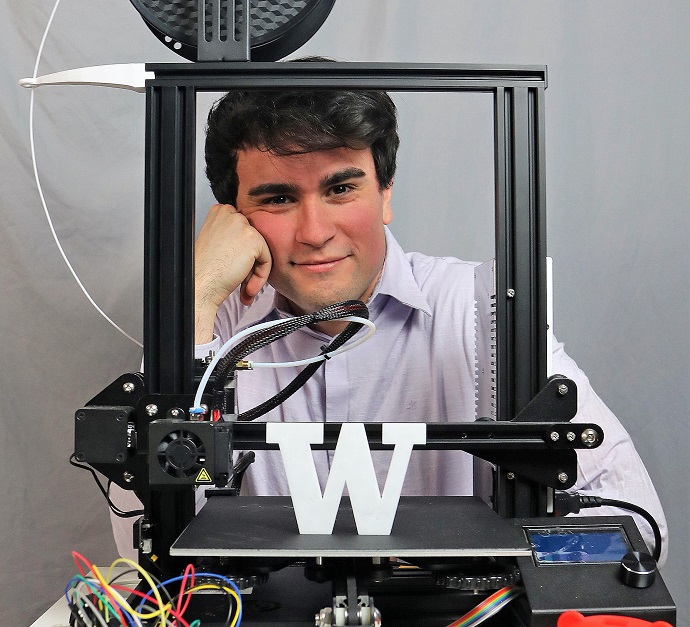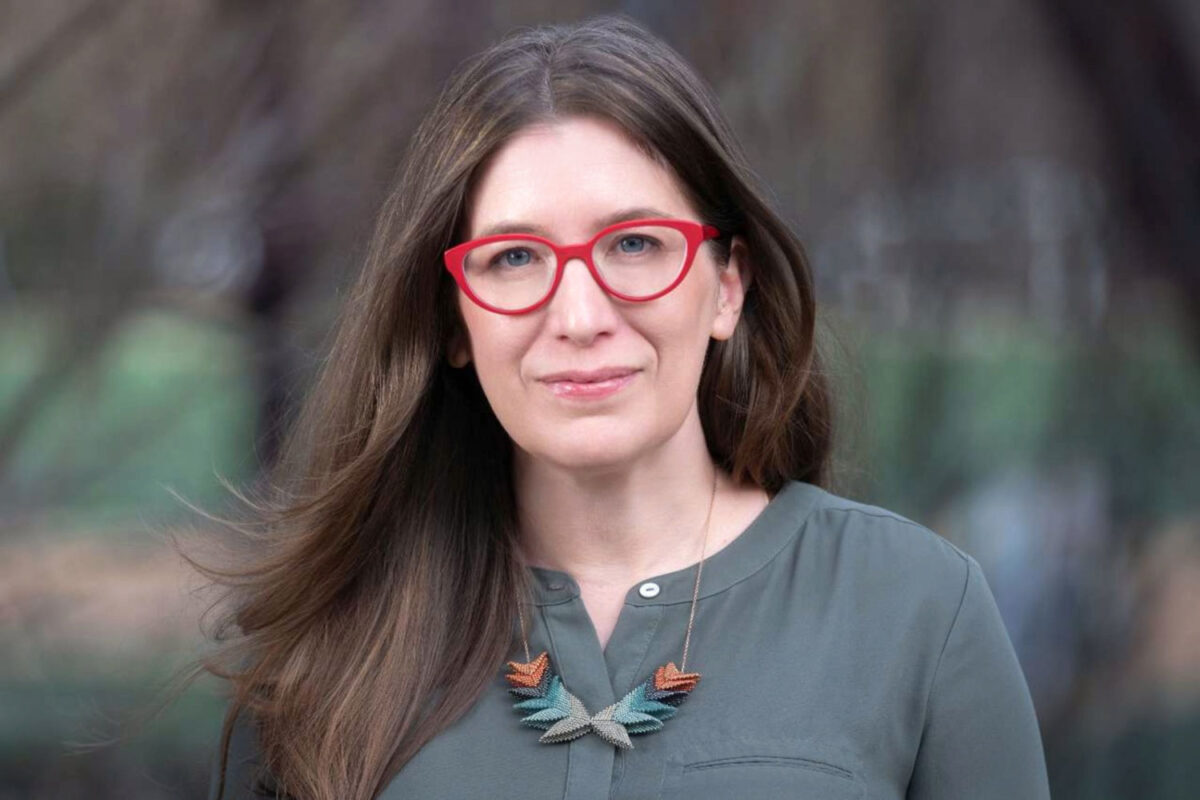
By Sean Park
In 2016, Nick Degrasse was getting ready to graduate from high school. At the time, he was unsure about his career path but knew he wanted to go to college. He chose to attend the University of Washington Bothell because of its academic reputation and its proximity to home.
Four years later, his path is clear: To help improve the lives of people who have experienced physical trauma.
Degrasse said his early classes at UW Bothell inspired a passion for building devices, and this past spring he graduated with a degree in Mechanical Engineering.
“It is fascinating to me because it covers a wide range of topics and the benefits from it are limitless,” he said. “While working with robotics, I’ve discovered I can do a lot of good in this space, and many people are depending on this technology to improve their lives.”
Building skills
This last academic year, Degrasse was recognized also as one of the Husky 100, students from across all three UW campuses honored for making the most of their UW education.
As a sophomore, he started doing research with Jong Yoon, associate professor and ME program coordinator. Yoon was working on wheelchairs and mechanical gloves that involved a lot of original thinking and experimentation.
“When I saw Dr. Yoon’s lab and saw the work that he was doing, I was immediately interested and asked him if I could volunteer over the summer,” said Degrasse. “He allowed me to help him brainstorm ideas and get hands-on experience with the prototypes. It motivated me to teach myself skills that carried over into my studies and class projects.”
As a senior, Degrasse served as the team leader for his capstone project. He and his team continued an idea formed by a past group of student engineers where a tabletop robot, the size of a softball, follows a path drawn out by a physician. A patient then reaches out to follow the robot on a specific path. The robot collects data to identify which areas are harder for the patient to reach, which then helps create a more personalized rehab program.
Real-world applications
The inspiration behind this capstone project came from a real-world problem, Degrasse said. “It’s becoming harder and harder for physicians to have one-to-one time with their patients. Hopefully, this robot can provide a friendly and effective service — and can make the rehab experience more fun and engaging,” said Degrasse.
The fun would come from patients having additional interaction with the robot, rather than being left to do exercises all on their own.
“For example, if people have a stroke and have trouble moving their shoulders and arms, a common exercise for this injury would involve taking a washcloth and moving it around a table, which can be aggravating and boring,” said Degrasse. “With a robot leading the exercise, the patients are more engaged and don’t have to wait for the physician to always be there watching.”
Degrasse’s inspiration also came from being with real patients. “It really clicked for me when we went to Harborview Medical Center in Seattle, and I got to see the potential our invention had to help people,” he said. “They’ve just been through a possible life-altering or traumatic experience, and to be able to provide them with something that can help make the process better and less isolating for them was rewarding.
“That trip helped me realize this is definitely the environment I want to stay in,” Degrasse said.
Connecting the dots
When Degrasse was not engaged in his course work, he served on the Student Facilities Advisory Committee and on the Career and Internship Specialist Hiring Committee.
He also had jobs on campus. Starting his sophomore year, he worked as a front desk staff member for the Activities & Recreation Center. Heading into his junior year, he had worked his way up to being a building manager.
“Looking back at the jobs that I’ve had, I realized that everything I’ve learned led me to excel at the next thing, and the dots just kept connecting,” said Degrasse. “For example, I was a server at a restaurant my freshman year and that role taught me customer service and how to excel in a fast-paced environment. Those skills then helped me become the building manager and that opened up other doors as well.”
The many experiences he created on campus — inside and outside his classes — only make him eager to do even more as he begins life after graduation.
“I realized that after saying yes and capitalizing on one opportunity, another one opens up, and all those skills and experiences are connected in helping achieve the next one,” said Degrasse. “I found my calling in life by continuously stepping out of my comfort zone.”
Aspiring to do more
Remembering all his school work, extracurricular activities and jobs over the past few years, Degrasse said it is a privilege to be recognized as part of the Husky 100.
“This award definitely makes me feel like the work that I’ve done was worth it,” he said, “and helps me to see how so many different facets that I was involved in came together to make me a better student and leader.
“As I think back to the time I spent involved in campus, those memories just make me want to do even more.”
Each year, the University of Washington selects 100 students who are making the most of their Husky experience. Thirteen UW Bothell students were recognized as part of the Husky 100 Class of 2020. What’s special about a Husky 100 recipient? They dare to do. They use what they learn inside and outside the classroom to grow personally and to create change in their communities.



